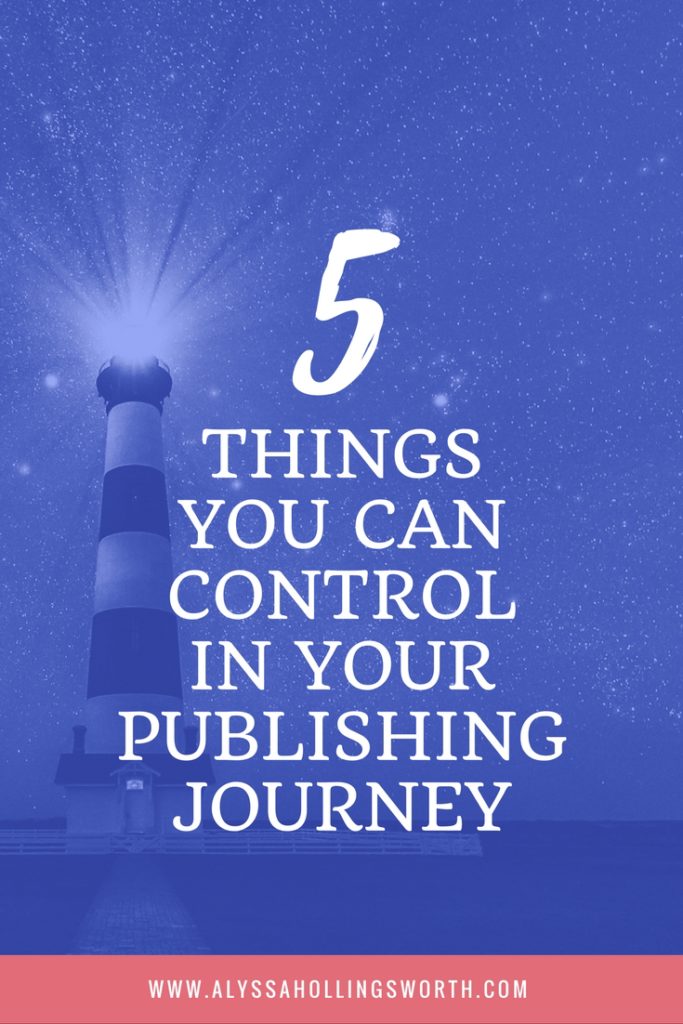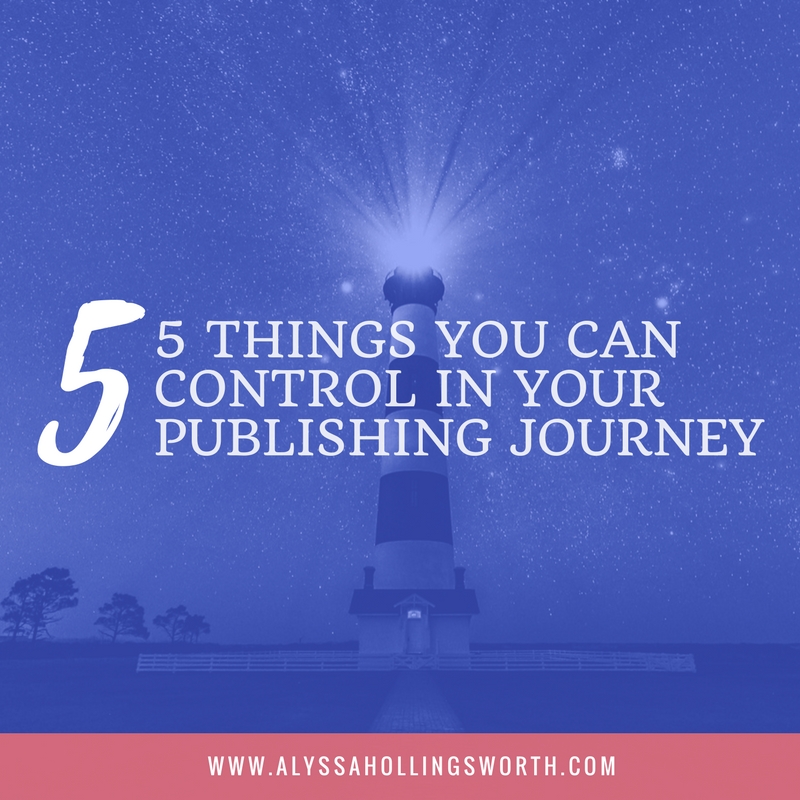 Whether you are going the traditional publishing route or you aim to self-publish, there will be things that you can’t control. This entry is geared toward writers who want to have a career of some sort through traditional publishing, because that’s the side I’m more familiar with, but I’d love to get some tips in the comments from independently published writers!
Whether you are going the traditional publishing route or you aim to self-publish, there will be things that you can’t control. This entry is geared toward writers who want to have a career of some sort through traditional publishing, because that’s the side I’m more familiar with, but I’d love to get some tips in the comments from independently published writers!
With traditional publishing, you cannot control things like: Agents’ or publishers’ interest, how much your book sells, or how much your friends’ book sells. It’s a really uncertain world, where you are never quite certain what will come of all your hard work. This can get difficult to carry, which is why I want to share my list of five things you can control.
1. Your pleasantness.
This may sound like an odd one to have first, but I had an agent once tell my writing class this: The single most important aspect of a writer’s life is being a pleasure to work with.
Keep in mind that snagging an agent and signing your first book deal aren’t the end-all, especially if you want to make some sort of career out of writing. It’s book deal number two, three, or thirty that really matter.
Are you a pleasure to work with, so that agents and publishers will look forward to working with you for the next decade or three?
2. The quality (and variety) of your work.
Clocking hours is important. Though you can’t guarantee that every agent in the world is going to love your manuscript even if it is 100% error-proof (spoiler: they won’t), be sure that you put time and effort into the book so that it’s polished when it goes out. Definitely seek critique partners and beta readers who will stretch your writing skills and push you into better storytelling. Before you send it off, make it the best it can be.
But once it’s done, don’t be shy about starting something new. Sometimes agents or publishers might like a writer, but will feel that the first manuscript isn’t the one that needs to be the debut. (This happened with Lucy Christopher, author of Stolen.) It’s good if you have other stories knocking around, or other manuscripts you are working on, because that can give the agent a sense of your scope as a writer, and show them that you’re serious about writing more than one book. (I also find it tremendously helpful to start working on other projects while an old one finishes, so I can avoid that awkward gap where I have no new work and feel a bit like a drifter.)
3. Your flexibility.
Try not to be too precious about your work. I know this might seem contradictory after the last point, where you put your heart and soul into making it shine, but I think it’s important. A writer’s life requires a certain amount of flexibility in expectations.
If you’re 100% set on having your first manuscript be the one that’s published, and it doesn’t work out, you might block the door for your other projects. If you are convinced you know the sort of cover you want, and you can’t accept the publisher’s choice, you’re only setting yourself up for disappointment (because, spoiler again: most publishers don’t care).
At some point, you might have to let go of your dream for how your publishing journey is “supposed” to happen. You might have to adjust to reality and work with the flow. If you’re immovable, you’ll quickly find it very hard to keep being point #1 – a pleasure to work with.
4. Your response to other writers.
I don’t know about you guys, but I am embarking on my journey around the same time as a lot of my friends. It’s been wonderful to have a community of writers to share my experiences with, and it’s been great to have the opportunity to celebrate with them when they have good news (or rant with them when they don’t).
However, as with all groups, it’s a delicate challenge to stay away from comparison, envy, and discouragement – especially when your group of writer friends are amazing and keep doing freaking awesome stuff.
Here’s my golden rule for writing communities: Someone else’s success does not mean my failure.
Just because my friend had an agent express interest doesn’t mean I’ve somehow lost out. It’s not a competition to tally numbers, and (I think, anyway) numbers in the initial stage has very little correlation to the value of the piece. You don’t need fifteen agents to be interested for you to succeed – you just need one. You don’t need that first publishing deal in order for your writing career to be a success – you need publishing deal #6.
It’s easy to say, hard to do, but stay positive and enjoy each others’ successes.
5. Your optimism.
I have a very level-headed writer friend who I have already basically plagiarized in this entry (but she will forgive me because we have the same brain), so here’s credit where it is due. My friend Annie recently started querying, and received a few very detailed rejections, which she came back to me and said, “I’m calling these ‘good rejections.’” She listened to the feedback and adjusted her manuscript accordingly, and didn’t let the bump slow her down—she used the momentum to propel herself forward.
You cannot control how people (agents, publishers, readers) will respond to your story. But you can control your own emotions. You control whether feedback and criticism cripples you, or whether it empowers you.
Don’t self-sabotage. Do whatever is necessary to keep your chin up and keep moving forward.
Have I missed a few points? What are other things you can control in your publishing journey? Leave a comment below!
(this entry was originally posted on The Great Noveling Adventure)

















